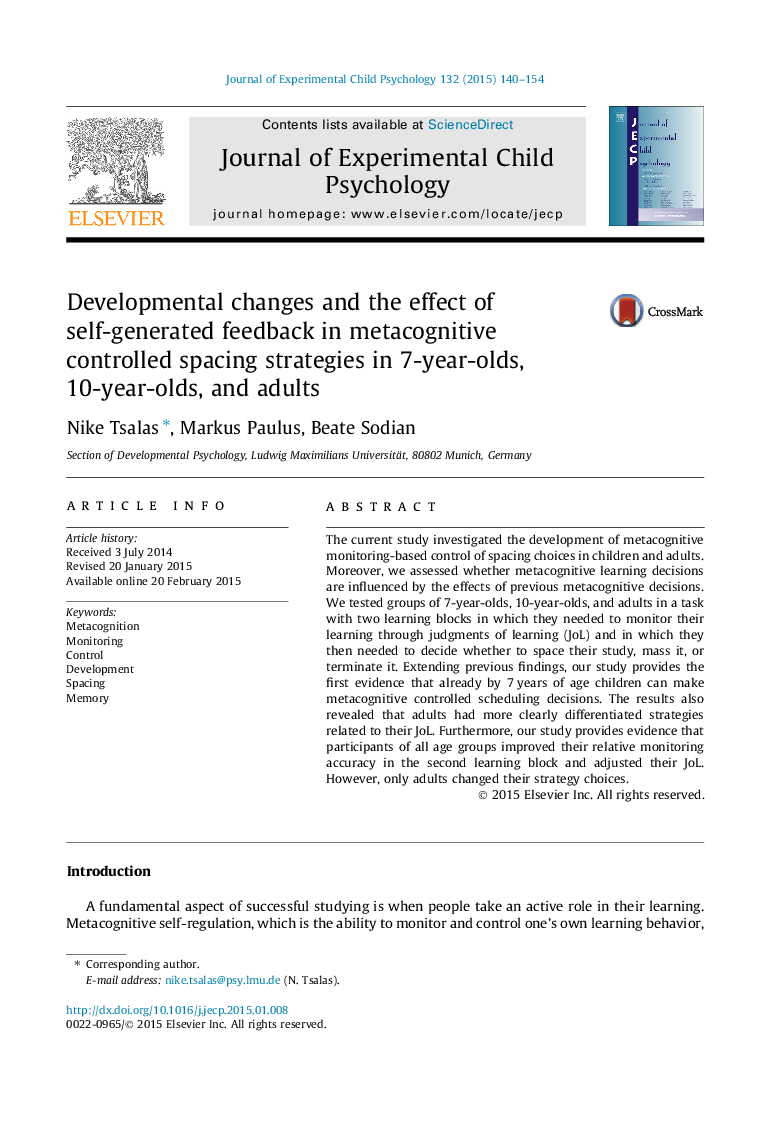| Article ID | Journal | Published Year | Pages | File Type |
|---|---|---|---|---|
| 917982 | Journal of Experimental Child Psychology | 2015 | 15 Pages |
•We used a spacing paradigm to investigate metacognitive based control in learning.•We looked at the effect of self-generated feedback on future monitoring and control.•Already 7-year olds made metacognitive based spacing decisions.•Children and adults adjusted their monitoring after self-generated feedback.•Only adults adjusted their control after self-generated feedback.
The current study investigated the development of metacognitive monitoring-based control of spacing choices in children and adults. Moreover, we assessed whether metacognitive learning decisions are influenced by the effects of previous metacognitive decisions. We tested groups of 7-year-olds, 10-year-olds, and adults in a task with two learning blocks in which they needed to monitor their learning through judgments of learning (JoL) and in which they then needed to decide whether to space their study, mass it, or terminate it. Extending previous findings, our study provides the first evidence that already by 7 years of age children can make metacognitive controlled scheduling decisions. The results also revealed that adults had more clearly differentiated strategies related to their JoL. Furthermore, our study provides evidence that participants of all age groups improved their relative monitoring accuracy in the second learning block and adjusted their JoL. However, only adults changed their strategy choices.
